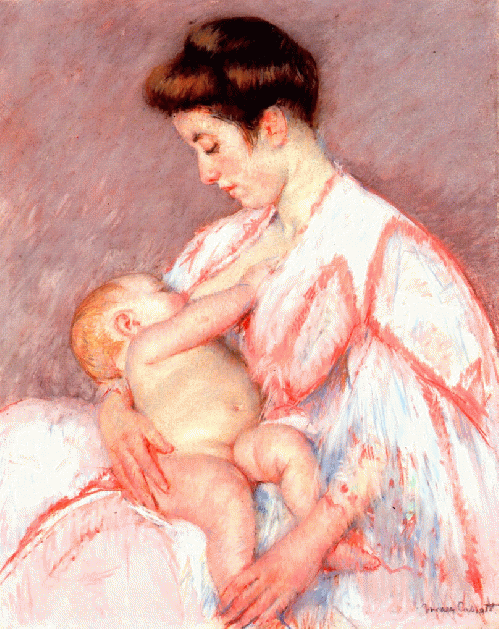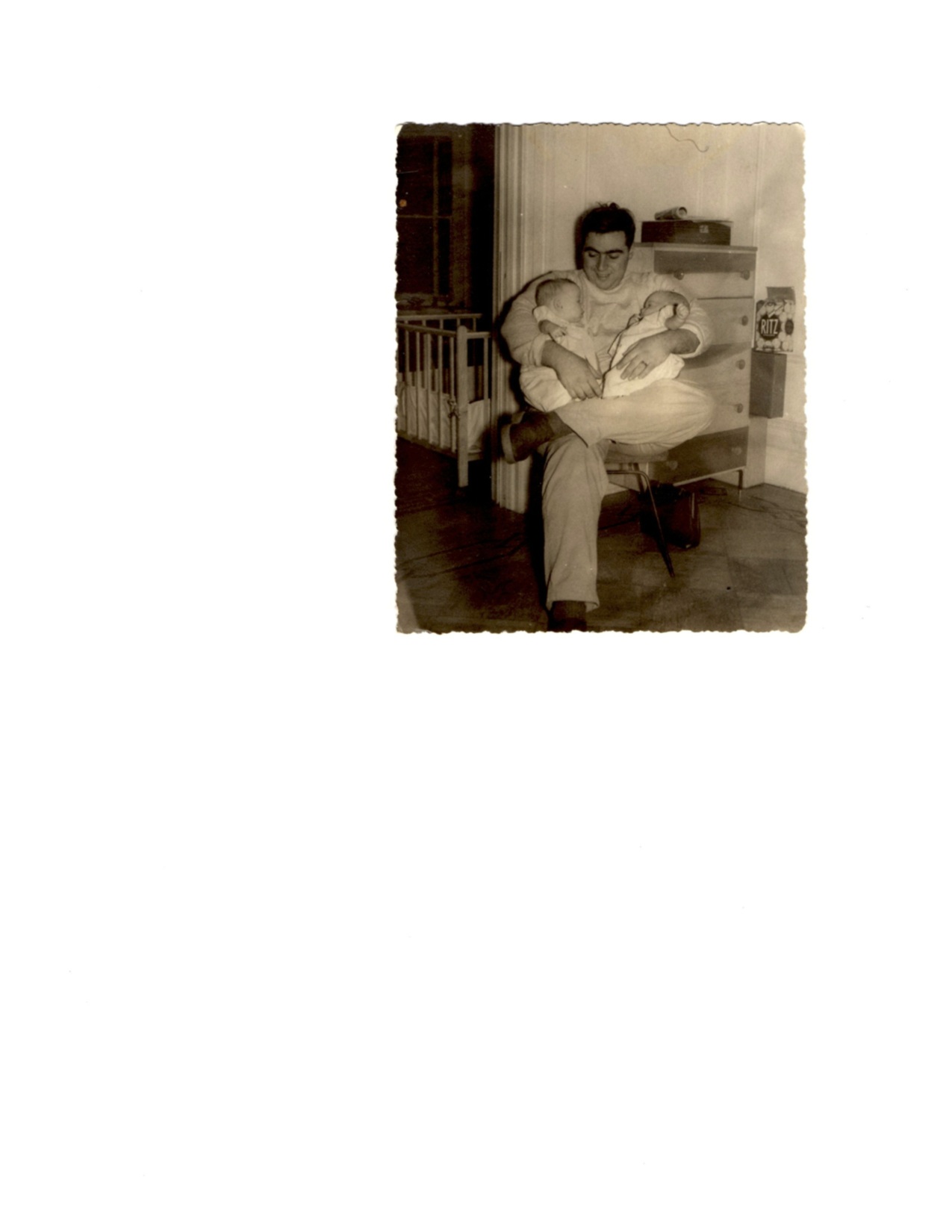
Mary Cassatt Painting: .Baby John Being Nursed.
(Image by (Not Known) Wiki Commons, Author: Author Not Given) Details Source DMCA
Not long after the election of 2012, the great Melissa Harris-Perry spoke on her show about the role of FLOTUS Michelle Obama, as the self-described "Mom-in-Chief":
"I know there was some sort of critique that emerged often from the sort of second wave feminist movement that said, OK, you can't -- you can't say mom-in-chief. We have come too far. And I kept saying, no, no, no. When an African-American woman says, my family is more important than any other thing, that's almost politically subversive in its historical power."
She was making an important point about what Hester Eisenstein calls "hegemonic feminism" - that the world Betty Friedan was rebelling against in The Feminine Mystique was not available to African-American women at that time. As Harris-Perry's guest pointed out on the same show, women of color were considered not quite good enough to mother their own children, but were perfectly suited to toil in the kitchens of white families, taking care of those families' children. Barbara Ehrenreich and Deirdre English made a similar point about the world of over a century ago: white, upper-class women were uniquely considered too delicate for work. In fact, white wealthy women were seen to be in constant need of medical attention, while poor women somehow did not.
Harris-Perry's point is a sad commentary on the history of the women's movement - i.e., its obliviousness to issues of race and class - but it also reveals an enduring truth about the turmoil beneath the choices of women everywhere: we torment ourselves with self-doubt, appeal to other women to assuage our guilt, and reassure ourselves by sitting in judgment on women whose choices are different from ours. As such, the "mommy wars" never seem to end.
I suspect one of the reasons Anne-Marie Slaughter's recent article in The Atlantic was so widely read was because it played out a painful exchange between women; the less experienced desperately appealing to the more experienced for approval - to be told that they were not letting other women down in the quest for equality. Slaughter's article gave many women the "permission" to be merely human - to stop trying to "have it all by doing it all" (to quote Gloria Steinem.) The question is: have we finally come to a point where all women can be free from judgment about their work choices?
Such is the backdrop of the latest feud on the "proper" role of women, between Lisa Miller in New York Magazine, and Jaclyn Friedman in The American Prospect. Miller interviews women who gave up careers to stay home to raise children, backed up by studies that show more stress in two-career families, and a nagging belief that women are better and homemaking and child care.
Friedman faults Miller for having an overly rosy view of stay-at-home motherhood, and for what's often called an "essentialist" view of motherhood - that women are naturally better at it. Friedman rightly points out that all families struggle under the inflexible workplaces of the U.S. that force many of these false choices. But at the same time, her sarcasm towards Miller's piece reveals a schism in Friedman's own analysis: She is simultaneously annoyed at women's career ambitions being subdued by the happy homemaker scenario, and peeved that not all women have the luxury of choosing.
She starts her piece of with a heavy dose of snark:
"Good news, ladies! Feminism has fizzled, and those of us who aren't suckers are giving up our career dreams to follow our female nature.."
She then cites an article based on Gallup's findings, that stay-at-home moms are more likely to be lower income than moms working outside of the home, which she points out is "neither liberating nor a lifestyle choice." The Gallup article itself points to the fact that lower-income women (who are often low on education as well) can't make enough money to clear any financial benefit after child care. This consideration gets short shrift in Friedman's article, as it figures largely into all women's work choices. Moreover, she glosses over the fact that the Gallup finding show 45% of women preferring to stay home.
Friedman then pivots to the issue of privilege that she had just knocked down:
"... focusing on the individual choices of a small minority of women privileged enough to choose is missing the entire point of feminism."
This, of course, begs the question of just what is the point of feminism. Friedman can't have it both ways, casting staying at home as a loss of women's rights, while expressing resentment at the "privilege" of choice. After all, wasn't feminism supposed to be about expanding women's choices?
And this is where what hegemonic feminism goes astray. Eisenstein points out that 1970's feminists allowed themselves to be co-opted by a culture that refuses to put a value on the work of child care, and thus embraces a form of capitalism that eventually found more women chasing lower-paying jobs, with the side effect of furthering globalization. If feminism is defined as careerism, then we have lost the focus on the the quality of women's lives as they struggle to raise their families.
(Note: You can view every article as one long page if you sign up as an Advocate Member, or higher).





